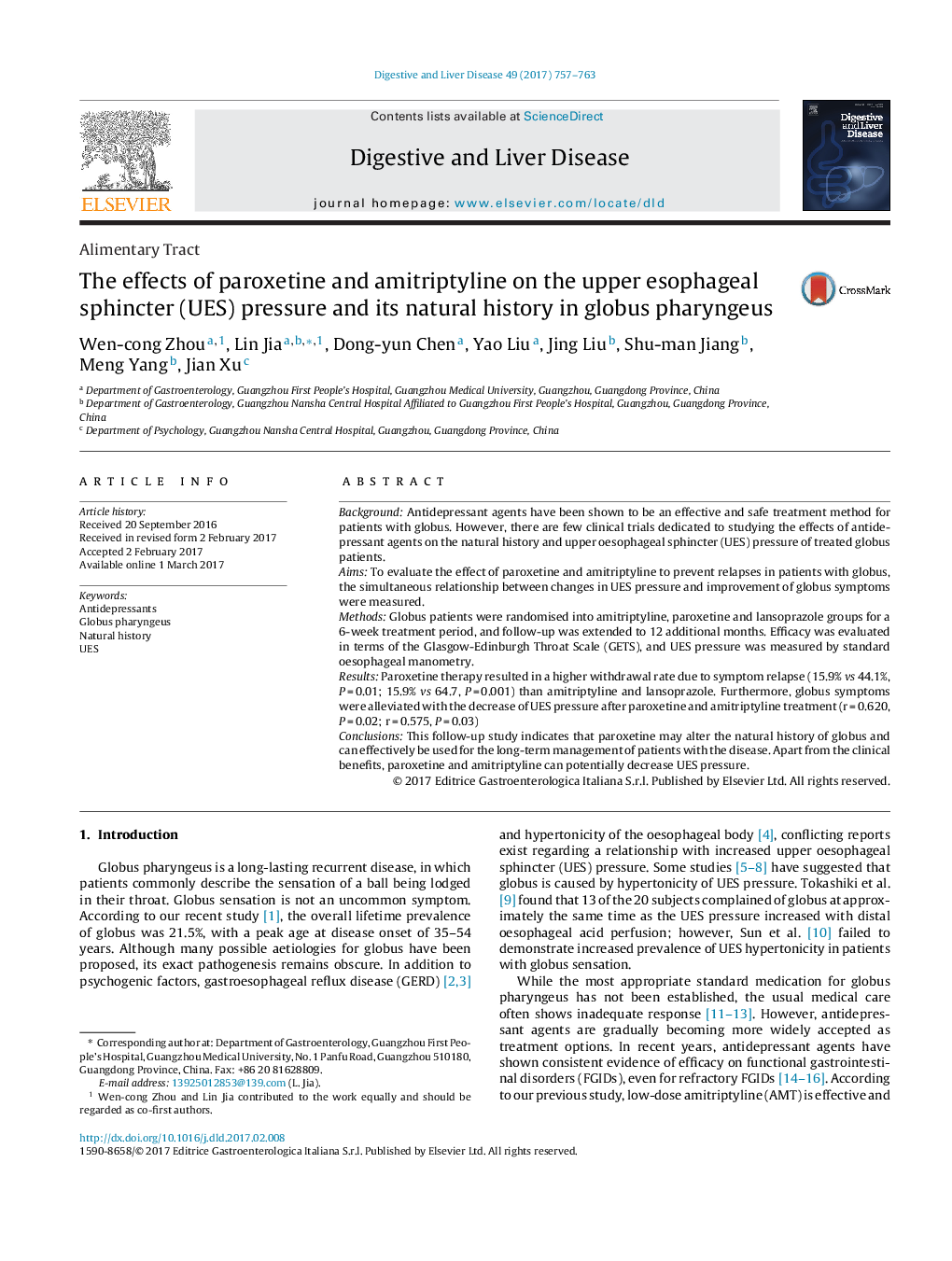| Article ID | Journal | Published Year | Pages | File Type |
|---|---|---|---|---|
| 5655426 | Digestive and Liver Disease | 2017 | 7 Pages |
BackgroundAntidepressant agents have been shown to be an effective and safe treatment method for patients with globus. However, there are few clinical trials dedicated to studying the effects of antidepressant agents on the natural history and upper oesophageal sphincter (UES) pressure of treated globus patients.AimsTo evaluate the effect of paroxetine and amitriptyline to prevent relapses in patients with globus, the simultaneous relationship between changes in UES pressure and improvement of globus symptoms were measured.MethodsGlobus patients were randomised into amitriptyline, paroxetine and lansoprazole groups for a 6-week treatment period, and follow-up was extended to 12 additional months. Efficacy was evaluated in terms of the Glasgow-Edinburgh Throat Scale (GETS), and UES pressure was measured by standard oesophageal manometry.ResultsParoxetine therapy resulted in a higher withdrawal rate due to symptom relapse (15.9% vs 44.1%, P = 0.01; 15.9% vs 64.7, P = 0.001) than amitriptyline and lansoprazole. Furthermore, globus symptoms were alleviated with the decrease of UES pressure after paroxetine and amitriptyline treatment (r = 0.620, P = 0.02; r = 0.575, P = 0.03)ConclusionsThis follow-up study indicates that paroxetine may alter the natural history of globus and can effectively be used for the long-term management of patients with the disease. Apart from the clinical benefits, paroxetine and amitriptyline can potentially decrease UES pressure.
